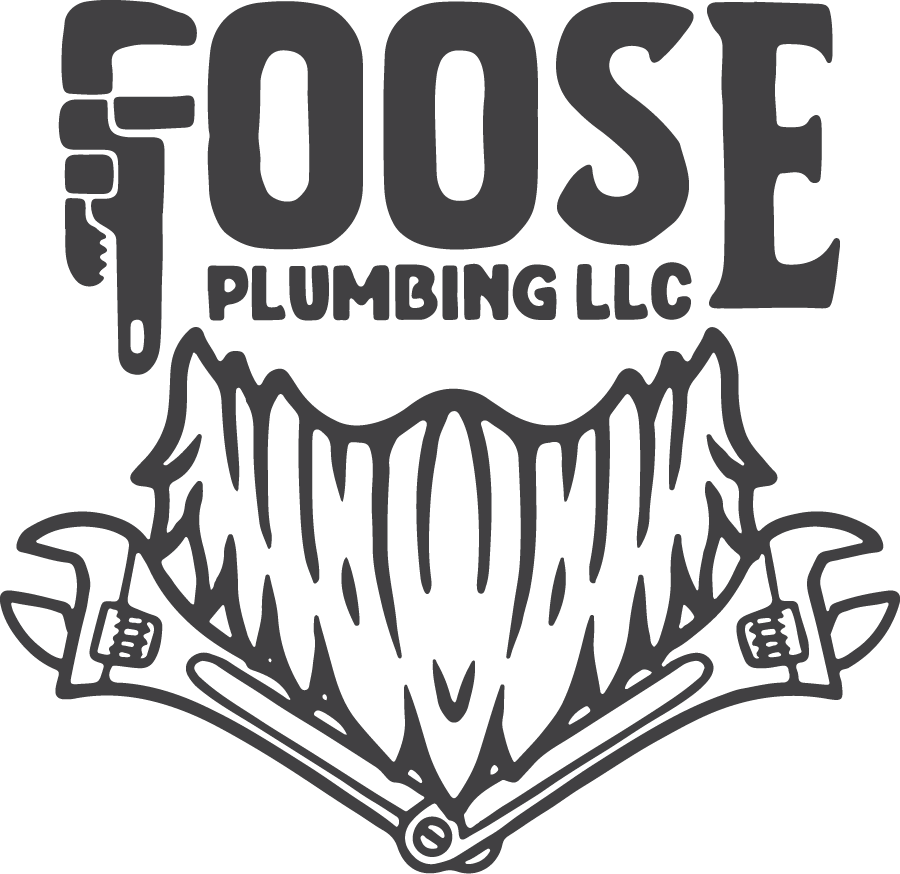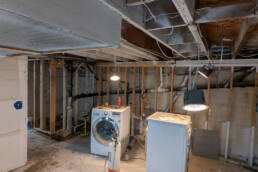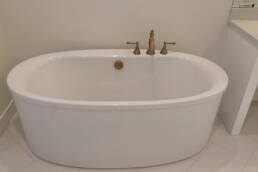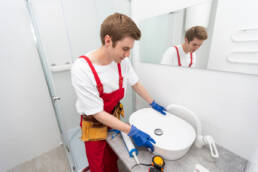As a homeowner, tackling small repairs and maintenance tasks around your home can be both satisfying and cost-effective. Plumbing projects, in particular, can range from simple fixes that you can handle on your own to complex issues that require professional expertise. Knowing when to roll up your sleeves and when to call in a professional is crucial to avoid costly mistakes and ensure the safety of your home.
At Foose Plumbing, we understand that Denver homeowners take pride in maintaining their homes. We also know that plumbing can be tricky, and the line between a manageable DIY project and a potential disaster can be thin. This blog aims to guide you through common DIY plumbing projects that are safe to attempt, as well as highlight situations where calling Foose Plumbing is the best course of action. Whether you’re dealing with a leaky faucet or a more serious plumbing issue, we’re here to help you make informed decisions and keep your home’s plumbing in top shape.
Why DIY Plumbing?
Benefits of DIY Projects
- Cost Savings on Minor Repairs:
One of the most appealing aspects of DIY plumbing is the potential to save money. By handling minor repairs yourself, you can avoid the costs associated with hiring a professional for every small issue that arises. - Sense of Accomplishment and Learning New Skills:
Successfully completing a plumbing repair can give you a great sense of accomplishment. Additionally, each project you tackle helps you build valuable skills and knowledge that can be applied to future home maintenance tasks. - Immediate Response to Minor Issues:
DIY repairs allow you to address problems as soon as they arise, without waiting for a professional to become available. This can be especially useful for small issues that need quick attention.
Risks of DIY Projects
- Potential for Causing More Damage:
While DIY repairs can be rewarding, there is always the risk of causing more damage if the repair is not done correctly. A small mistake can turn a minor issue into a major one, leading to more extensive and expensive repairs. - Safety Concerns:
Plumbing systems involve water, electricity, and sometimes gas lines, all of which can pose significant safety risks if not handled properly. Improper repairs can lead to injuries or dangerous situations. - Voiding Warranties:
Many plumbing fixtures and appliances come with warranties that may be voided if the item is not installed or repaired by a licensed professional. This can result in the loss of coverage for future repairs or replacements.
In summary, while DIY plumbing projects can offer several benefits, it is crucial to weigh these against the potential risks. Understanding your own skill level and the complexity of the task at hand will help you make the right decision about whether to attempt a repair yourself or call in the experts at Foose Plumbing.
Simple DIY Plumbing Projects
When it comes to DIY plumbing projects, there are several tasks that homeowners can typically handle on their own with the right tools and know-how. These projects are relatively straightforward and pose minimal risk when done correctly. Here are some common DIY plumbing projects that you can attempt yourself:
Fixing a Leaky Faucet
Tools Needed: Adjustable wrench, replacement parts (such as washers or cartridges), plumber’s tape.
Step-by-Step Instructions
- Turn off the water supply to the faucet.
- Disassemble the faucet and inspect the parts for wear or damage.
- Replace any worn or damaged parts with new ones.
- Reassemble the faucet and turn the water supply back on.
Common Mistakes to Avoid
- Overtightening fittings, which can cause damage.
- Reusing old parts that should be replaced.
Unclogging Drains
Methods: Plunger, baking soda and vinegar, drain snake.
Step-by-Step Instructions
- Use a plunger to try and dislodge the clog.
- If the plunger doesn’t work, try pouring a mixture of baking soda and vinegar down the drain, followed by hot water.
- For stubborn clogs, use a drain snake to physically remove the blockage.
Tips for Preventing Future Clogs
- Regularly clean drains with a mixture of baking soda and vinegar.
- Use drain strainers to catch hair and debris.
Replacing a Showerhead
Tools Needed: Adjustable wrench, plumber’s tape.
Step-by-Step Guide
- Turn off the water supply to the shower.
- Use the wrench to loosen and remove the old showerhead.
- Apply plumber’s tape to the threads of the shower arm.
- Install the new showerhead and tighten securely.
Benefits of Upgrading Your Showerhead
- Improved water flow and pressure.
- Options for water-saving features.
Installing a New Faucet Aerator
Tools Needed: None or a simple wrench.
Instructions
- Unscrew the old aerator from the faucet spout.
- Clean any debris from the threads.
- Screw the new aerator onto the faucet spout.
Benefits of Improved Water Flow and Efficiency
Reduced water usage and lower utility bills.
Running Toilets
Identifying Common Causes: Faulty flapper, improperly adjusted float, or a malfunctioning fill valve.
Simple Fixes and Adjustments
- Adjust the float to control the water level in the tank.
- Replace the flapper or fill valve if necessary.
When to Replace Internal Parts
If adjustments don’t solve the problem, it may be time to replace internal components.
These simple DIY plumbing projects can often be completed with basic tools and a little bit of patience. However, if you encounter any difficulties or are unsure about how to proceed, don’t hesitate to reach out to Foose Plumbing for assistance. In the next section, we’ll discuss situations where it’s best to call in the professionals.
When to Call Foose Plumbing
While DIY plumbing projects can be satisfying and cost-effective for minor repairs, there are certain situations where it’s essential to enlist the expertise of a professional plumber. Attempting to handle complex or risky plumbing issues on your own can lead to further damage, safety hazards, and potentially costly repairs down the line. Here are some scenarios where it’s best to call Foose Plumbing:
Major Leaks and Pipe Bursts
- Signs of Serious Leaks: Water stains on walls or ceilings, mold growth, unusually high water bills.
- Risks of DIY Repairs: Inadequate repair techniques can worsen the leak, leading to extensive water damage and structural issues.
Sewer Line Issues
- Warning Signs: Slow drains, foul odors emanating from drains or the yard, gurgling sounds coming from drains.
- Complexity and Health Risks: Sewer line issues often require specialized equipment and expertise to diagnose and repair properly.
Additionally, sewage backups can pose significant health risks to occupants.
Water Heater Problems
- Symptoms of Failing Water Heaters: Lack of hot water, leaks or puddles around the water heater, strange noises during operation.
- Dangers of DIY Repairs: Water heaters involve electrical and gas components, making DIY repairs risky and potentially hazardous.
Low Water Pressure Throughout the House
- Possible Causes: Pipe obstructions, issues with the main water line, or problems with the pressure regulator.
- Need for Professional Diagnostics: Determining the root cause of low water pressure often requires specialized equipment and expertise.
Gas Line Repairs
- Importance of Safety: Gas line leaks can be extremely dangerous, posing a risk of fire, explosion, or carbon monoxide poisoning.
- Legal Regulations: Gas line repairs must comply with local building codes and safety regulations, necessitating the expertise of a licensed plumber.
In these situations, attempting DIY repairs can exacerbate the problem and pose serious risks to your home and safety. By contacting Foose Plumbing, you can ensure that the issue is addressed promptly, effectively, and with the utmost attention to safety and quality.
Remember, at Foose Plumbing, our team of experienced professionals is here to handle all of your plumbing needs in the Denver area. Whether you’re facing a minor repair or a major plumbing emergency, you can count on us to provide reliable service and peace of mind.
Tips for Deciding When to DIY or Call a Plumber
Making the decision between DIY plumbing and calling in a professional can sometimes be challenging. Here are some tips to help you determine the best course of action:
- Assess the Complexity
DIY Projects: Simple tasks like fixing a leaky faucet or unclogging a drain are usually safe to attempt on your own. However, if the issue involves complex systems or specialized equipment, it’s best to leave it to the professionals. - Consider the Tools and Skills Required
DIY Projects: Evaluate whether you have the necessary tools and skills to complete the repair properly. Attempting a project without the right tools or expertise can lead to mistakes and further damage. - Evaluate the Risks
DIY Projects: Consider the potential risks involved in attempting the repair yourself. If there’s a risk of causing more damage or compromising safety, it’s better to seek professional help. - Time and Cost Factors
DIY Projects: While DIY repairs can save money upfront, it’s essential to consider the long-term costs. If a DIY repair leads to additional damage or requires professional intervention later on, it may end up costing more in the long run. - Know When to Call Foose Plumbing
Complex or Risky Repairs: If the repair involves major leaks, sewer line issues, water heater problems, low water pressure throughout the house, or gas line repairs, it’s best to call Foose Plumbing for expert assistance. - Safety First
Gas and Water Safety: If the repair involves gas or water lines, prioritize safety above all else. Gas leaks and water damage can pose serious risks to your health and property, so it’s essential to seek professional help immediately.
Conclusion
Knowing when to tackle a plumbing issue yourself and when to call in the professionals is key to maintaining a safe and functional home. While DIY projects can be rewarding and cost-effective for minor repairs, it’s essential to recognize the limitations and risks involved. When in doubt, don’t hesitate to reach out to Foose Plumbing for reliable service and peace of mind.
Whether you’re facing a minor plumbing repair or a major emergency, our team of experienced professionals is here to help. Contact Foose Plumbing today to schedule an appointment or consultation for all your plumbing needs in the Denver area. With our expertise and dedication to quality service, you can trust us to get the job done right the first time.

Foose Plumbing: Your Premier Partner for Exceptional Plumbing Solutions
Discover unparalleled expertise and seamless collaboration with Foose Plumbing, the pinnacle of plumbing services in Denver. As the leading plumbing service, Foose Plumbing stands as the ultimate choice for construction projects seeking precision, reliability, and unwavering compliance.
Like this article? Spread the word!
Related Posts
November 15, 2024
Foose Plumbing: Denver’s Trusted Partner for Reliable, High-Quality Plumbing Solutions
Foose Plumbing offers top-tier plumbing services in Denver, Colorado. From emergency…
July 30, 2024
Essential Fall and Winter Plumbing Tips for Denver Homes
Prepare your Denver home for fall and winter with expert plumbing tips from Foose…
July 8, 2024
The Essential Guide to Choosing the Right Plumber in Denver
Discover top-notch plumbing services in Denver with Foose Plumbing. From leak detection…





